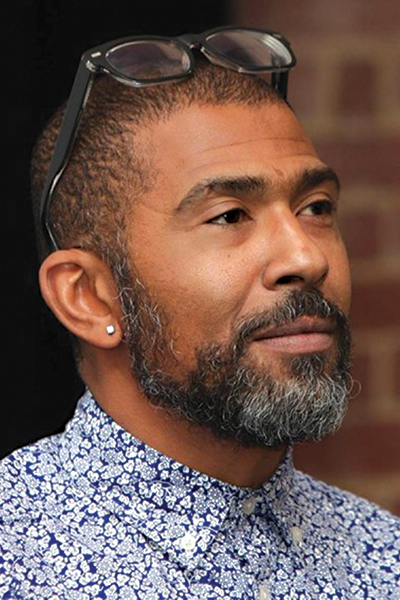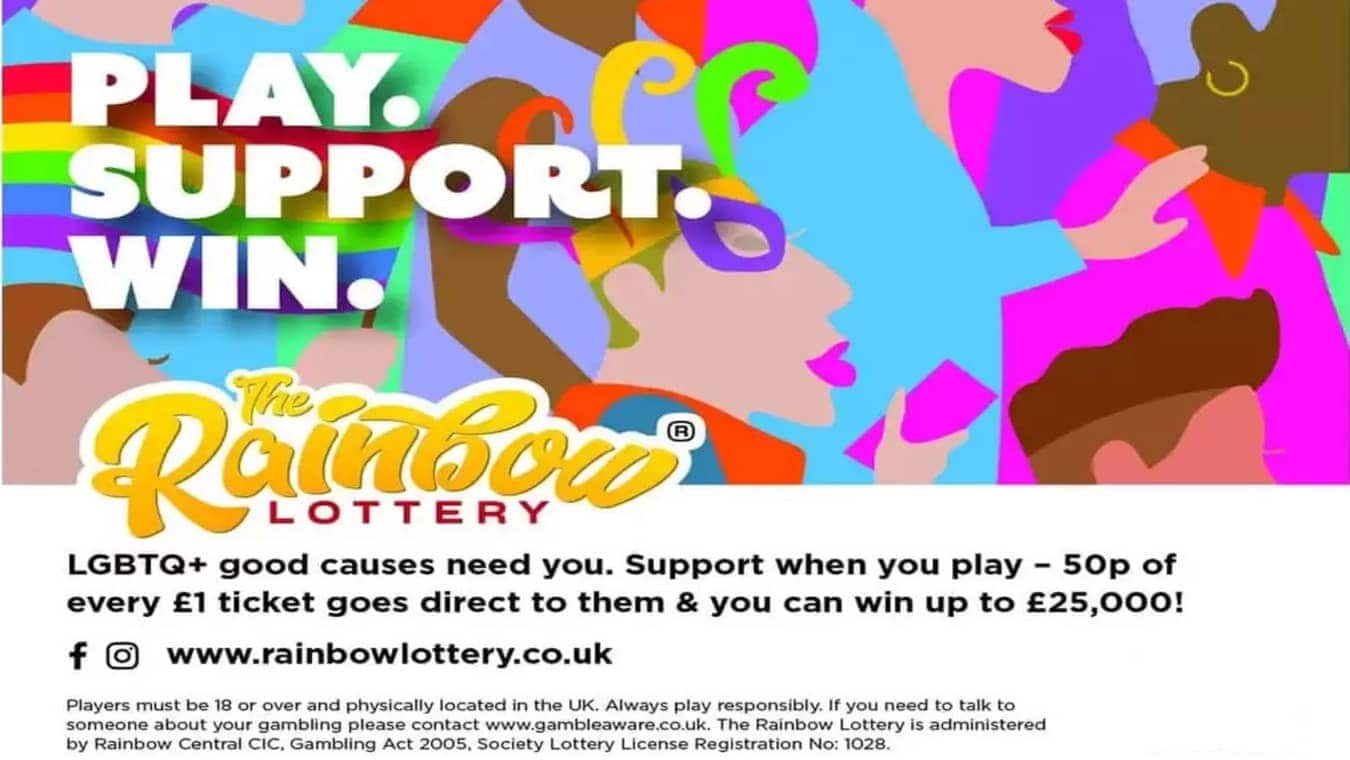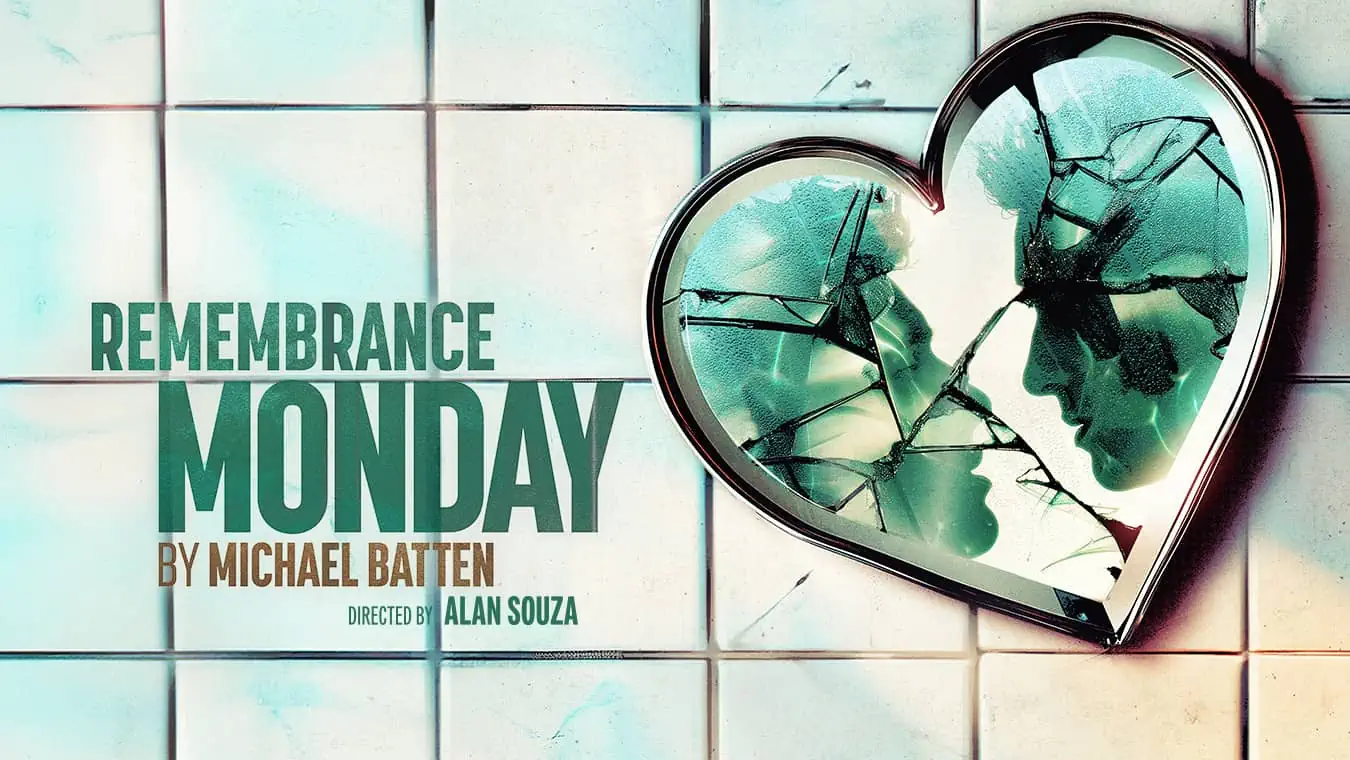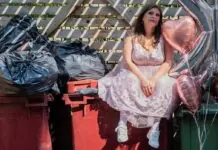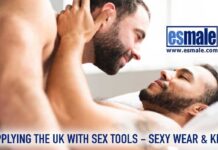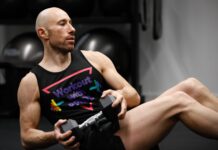Marc Thompson, Peer Mentor Project Coordinator at Positively UK, speaks in-depth about the relations between race and sexuality in London.
By Patrick Cash
How was it growing up as a BME MSM man in London?
I was born in Brixton so right in the heart of it, I’m 45 and 46 this year, I grew up in the 70s and came out in 1985. I never really had any conflict between my sexuality and my race, I remember growing up I felt I was the only gay person, but I knew I wasn’t. I thought I was the only black gay person because there were no images of me anywhere, obviously there were very few images of gay men in the 1980s, and even if I picked up gay porn or looked at it I never saw myself represented in there.
But it wasn’t a huge conflict and I think it has a lot to do with my parents; they were not church-goers, religion wasn’t a huge part of my family life, they were working class, regular people, my Mum was really cool about it but just wanted to make sure I was safe. She thought when I came out that I’d end up in Piccadilly selling my arse. And when I told my Dad five years later when I was 21 he was angry and he was upset but his love for me as a son overrode that. He met my boyfriends in the future before he died and he was cool with that. It wasn’t an uncomfortable, difficult experience for me, personally.
In what way was your Dad angry and did you feel it influenced by the community around him, did you feel much homophobia in the BME community?
When I grew up I think there was as much homophobia in the BME community as there was in white society as there is now and that’s what gets distorted. My Dad grew up not knowing any gay men in Jamaica, came here in the 60s when homosexuality in this country was illegal. But in the community I never grew up hearing homophobic language in my house, it wasn’t vitriolic in my home. I remember one time a story of my Dad being touched by a man in a café and him going ballistic but I’m not belittling that, but it wasn’t a big issue, sexuality and homophobia didn’t cross my sphere, race was a bigger issue.
What was the biggest issue for you in terms of race?
I grew up in a predominately black area between Brixton and Peckham, went to a predominately black school but when you stepped out of that sphere and I came out, that’s when I became acutely aware of the fact that I was different. I moved around a very small black gay scene and you felt safe there but stepping out of that, going to bars and clubs, coming into Brief Encounter or the Coalherne in Earls Court, and Britain in the 70s and 80s it wasn’t a particularly nice place for many people but if you were black or brown it wasn’t, but you managed it and dealt with it.
One of the elements of the report is that the BME community’s emphasis on faith creates a conflict with acceptance of homosexuality? Would you agree with this? And this leads me on to the question of Ru Paul’s statement ‘people who have been oppressed take on the elements of the oppressor’?
When I read the question here my immediate answer was ‘no’. I think religion does play a part in homophobia, I think that we’re a massive, hugely diverse community, I was at a conference yesterday and somebody was talking about doing work on HIV for African faith leaders and somebody said ‘again?’ My point is we don’t all go to church. But yes, on the African continent, in parts of the Caribbean, in parts of the communities in the UK, religion does play a huge part, and sometimes it’s something for us a BME community to hide behind, ‘it’s religion that makes us like this’, rather than accepting the deeper issues of hyper-masculinity, sexism and misogyny in our communities. The fact that we have to look at where that negativity comes from as a race of people, we don’t, very often all of us as people, we don’t look very far back in history. Religion has been imported, we know that from colonialism, but if we look at the current state of stuff in Africa, throughout the 70s and 80s and 90s, homophobia was not a part of the conversation. This American pastor –
Dr Scott Lively?
Scott Lively’s nonsense cannot get a voice in the United States because of the whole power of the gay rights movement, so what do you do? You take it to countries where there is poverty, where there are problems, and you plant it there. It’s the same thing with UKIP and far right parties capitalising on economic poverty and saying ‘let’s blame the migrant’, so basically what you do to those African countries is saying ‘your problems are down to those dirty homosexuals’ and you’re religious people, you believe in God, and the Bible tells you not to, so that reaffirms it, and you can draw the line right back to the justification of slavery, your Bible says that you should be slaves and you should be slave-owners. I think for us as a BME community and the African diaspora we need to check that and we need to go ‘we can be religious and we can have faith but let’s have a good shout of it’. There’s a lot of stuff in there that we pick and choose, and cherry-pick, Leviticus and all that.
I wanted to pick up on Ru Paul’s statement about the oppressed becoming the oppressor; for a really long time I always applied that to white gay men, and issues of race and black people or black gay men. And I think it does happen that as a gay men we get shat upon from a very great height and so we take that out on others, we can be sexist and racist and really offensive because we kick back, at those that are lowest or weaker than us. So for black people I’m not sure, I take that word ‘oppressor’ really carefully because I think as a people we are very powerless, we can talk the talk but we can’t walk the walk, and we can’t implement it. As much as we can scream and shout in Uganda and all the rest of it, we’re not going to stop gay marriage and we’re not going to stop gay people having babies, it’s not going to happen. And if you’re influencing that kind of stuff, it’s not the poor Africans waving placards, who are riled up by their stupid leaders to get votes, it’s not them, no one is naturally born hating people, it’s not embedded in us.
Excellent, thank you. How diverse and representative do you find the contemporary gay scene?
I think the first thing to say about that is I’m 45, I’m not part of the gay scene as it once was, I’m not on dating apps. My experience again up until I stopped going out in the early noughties, is for me I experienced a fairly segregated scene, you do have places that are predominately white and predominately BME but now there’s more crossover and that’s a beautiful thing. I think it might be a generational thing because younger people grow up and they mix more, and there are more spaces like that. But there are still spaces that are uniquely this or uniquely that: Bootylicious for example, or you get XXL where there might be a smattering of people. And at Pride we call it the ‘Urban’ tent but we know what it is: black, or BME. Let’s not dress it up. And that’s not bad, it happens all the time, people mix differently and that’s cool. Where it becomes problematic and I think it isn’t diverse, I still know men of colour who go to gay clubs or bars and either get refused entry because they don’t look the type, or get asked at the door ‘you know this is a gay club, yeah?’ It happens all the time, because we might dress in a baseball cap, Timbland boots. And the third question is in the club ‘have you got drugs? Are you a dealer?’ Happens all the time, used to happen to me all the time and I stopped going out, but I used to have the same reaction ‘are you kidding me?’ and I’d be like ‘yeah, sure’ and take them straight to the bouncers. ‘Best meph you can ever buy’, take them straight to the bouncers and get them thrown out.
When we were at the event last week it was really cool to see a group of young guys really integrated, my generation not so much.
With visual representation it’s got a lot better, and I think that’s thanks to people working in the sector. I remember when I was at THT, they used to put out ‘Exposed’ magazine which was a quarterly magazine about sexual health and they put out about 9 issues and there had never been a single black men on the cover. I took over editing it and I made sure the first issue had a black guy on the cover and from then on I made sure every single issue had black guys covered inside there. It’s getting better.
I always have to be realistic in terms of the world we live in that we are a minority, and I don’t expect us to be plastered over everything, but I want it to be appropriate. Some of the things that are missing are positive representations of people of colour. Very often when the gay community talks about people of colour, it’s either PinkNews or GayStarNews, the homophobic rapper who said something really stupid or just used gay in a sentence and there was a negative verb on either side, or we’re homophobic and we’re African or Jamaican and that’s it, so there’s always a negative representation of us. So what that says to the wider white world is: that’s who they are.
The BME community is never in the conversation about gay marriage, we’re never in the conversation about equality, we’re never in the real conversation about HIV unless it’s quite negative so that really needs to change because what it says to me and to younger gay BME men is ‘you’re not really worth anything’.
The second thing that we’re missing is positive representations of black couples and black love and BME love and black women and men together. Nine times out of ten you’ll see a couple and it’s an interracial couple and I have no trouble with that but a lot of my friends because of the city we live in are mixed couples and it’s really cool because they’ve found love and that’s what matters, but there’s no representation. So when you see Jason Collins and Michael Sam all come out and they display a white partner that says to a young black guy who may be struggling with his sexuality, whose community may not accept him, that says to him this is where you’re going to find love, with a saviour. So then it stops us creating and forming bonds with other people and creating and solidifying a community and that’s the power. So you show that image of two black men holding hands, there was a great book that came out in the 80s In The Life, a collection of gay black writings, and one of the quotes was ‘black men loving black men is the revolutionary act’ because from day dot we’re told not to love each other, as men you must be fearful, you must be scary, don’t love him, your love is punished. If you love another black gay man, oh shit, that is revolutionary to your community and to white society and to the gay community and that’s why I really believe in it.
The imagery, the representation, we need to be part of it, because we have seen a complete change in who BME men are in this country. I saw a stat yesterday that made me bristle a little, ‘50% of BME men with HIV are Brazilian’ and what makes them BME? Because most of the Brazilian men I see don’t look like me and they don’t interact with me when they come to this country so what makes them BME – oh they’re immigrants and they don’t speak English. It’s become much more nuanced. My perspective is different to somebody who’s 25 and comes from Sao Paolo. But it’s all been lumped together.
Do you think lack of representation can add to low self-esteem and poor sexual health/substance abuse?
I think it does. As gay men we are all going through this, but when you add that extra layer it makes it even harder. ‘What enables us to manage the stresses that are put upon us?’ For many BME men we don’t have the safety net that other men have in the world. Either because we do feel removed from our communities physically because of migrating here, or because of our sexualities, it does lower your self-esteem, it can make you do all those things you describe. We’re not very good at engaging in services, we’re not very good at engaging in services period, we’re getting better and it does have something to do with the fact we’re not told to be healthy, health isn’t sold to any of us. I go and get my shit checked out because I’m positive, a lot of BME men don’t want to know that we’re more likely to be positive and we don’t want to have that conversation but I think that we’re all going through that, because when you add issues of race and migration. We were talking about dual minority, and people have often said ‘are you black or gay?’ but I’ve always said they’re intrinsically linked. I see a lot of the battles around sexuality are being won, but a lot of the stuff around race not so much, so as an activist that’s what drives me, and for me it’s about equality, it’s about fairness, if one group is healthy then we’re all healthy, if the poorest group is healthy then we’re all healthy.
The Mark Duggan shooting, the Ferguson events, and wider world events, how do you feel they affect BME MSM sense of identity in general?
First of all I have to talk about myself, it has been a clarion call and a wakeup call. I’ve always been acutely aware of racial politics but it was a boot that I didn’t imagine and opened my eyes to so much injustice and systematic racism, how far and deep it goes back and that’s played in my head in lots of ways. It’s made me look at my relationships with my white friends and examine where their heads are with all of this, and say ‘are you an ally? Are you privileged or unconscious of it?’ so it’s made me step back from a few people. It’s made me re-examine things that I might have said or parts I might have played; for example when I was at THT, I was the only black person there, did I do stuff to fit it in, was I minding my language around people, it’s made me more aware of that so I think if that’s happened to me it’s probably happened to a couple of other guys, men and women from BME communities who are African or of African-Caribbean descent. I think what’s interesting is that people are linking that now to white struggles, but what’s amazing is the lack of response from my white gay allies who are activists and fighters and I post a lot and Tweet a lot and I write on Tumblr, Facebook etc and the lack of people saying ‘this is outrageous, I feel your pain’. Nothing. Nobody. Hardly anything. People feel really uncomfortable talking about racial issues, it’s a really uncomfortable subject.
The Chelsea football fans thing: it happens all the time, why was everybody getting upset about it? What upset me was that nobody did anything about it at the time. They all stood by and it was ‘oh we felt threatened’, where were the people when a person of colour gets killed? When a black trans woman; we’ve got 6 black trans women killed in the past moth, where’s the outrage? It’s not there.
There was a young black gay man who went on a hookup in the States, got killed in his car by the hookup, nobody arrested, nothing. But the young trans woman who tragically committed suicide, people are writing songs and sonnets and Stephen Fry’s donating money and people are Tweeting and that’s why we get ‘black lives matter’, that’s the result of it. The issue is as human beings we don’t care unless you look like us, and that’s a sad state of affairs. When the things happen in Russia and I see people marching down to the Russian embassy and pouring out vodka, but when stuff happens in Uganda, people are on PinkNews saying ‘bomb them’, ‘they should all die of AIDS’, ‘ these jungle bunnies know nothing’, so that kind of racism is still alive and well. I know it’s the Daily Mail of the gay scene but it shows something. And a protest outside the Ugandan or the Zimbabwean embassy has 4 black people, I know the black community needs to step up its game but also the wider gay community does too, and it needs to be allies.
My final question is what sort of path of optimism do you see?
I quote the great Whitney Houston, ‘I believe the children are our future’. Nah, I’m kidding! I’m hopeful. I think that as a gay community I think that if things change in wider society they’ll change, but we can set an example and start to learn. Stonewall in 1969 was started by black and brown trans people, acknowledge that the Gay Liberation Movement of 1972 was directly influenced by the Civil Rights Movement, acknowledge that Bayard Ruskin, a legendary black gay icon, is somebody we should hold up. Check the spaces that we have, do the imagery, write these pieces, make sure that there are good-looking regular guys on websites, challenge the racial preferencing that’s happening online, have conversations about race.
Find out more about the excellent community work Positively UK does here.

